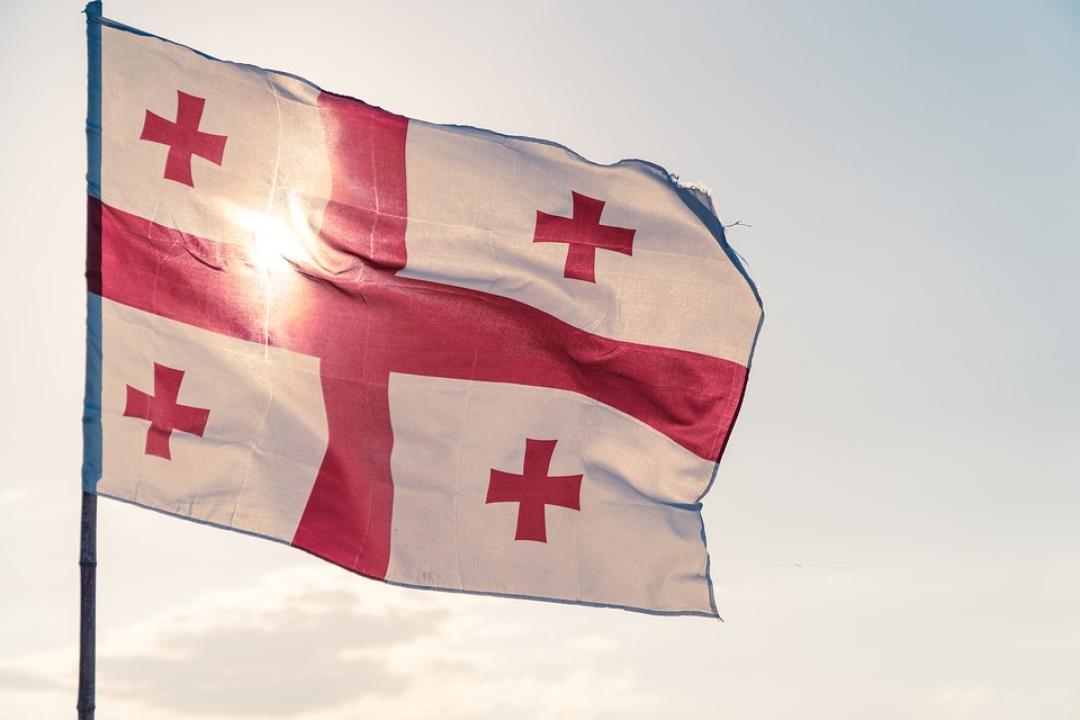
Georgian government increased the funding of infrastructural development by 20%

On 23 July the Prime Minister Mamuka Bakhtadze presented the 6-month report regarding the initiatives implemented within the scope of the infrastructure, education, as well as village support programs, regional projects and mountain foundations. “The Georgian Ministry of Infrastructure has increased its investments by 200 million GEL (69 million US Dollars) in the Georgian infrastructure in the first half of 2019. Strong regions means a strong country and regional development is our priority,” he said during the presentation, adding that the investments in Georgian infrastructure were raised by 20% in comparison to last year. He also vowed that by 2022 Georgia will have “very modern infrastructure,” which will allow the government to further develop the economy and overcome poverty and that 2019 is the most ambitious year in that regard.
In January 2019, the Minister of Regional Development and Infrastructure Maia Tskitishvili presented the priority projects of her resort for this year. According to the report of the ministry the most pressing infrastructural issues in the country are: the development of water supply and sewage systems; road, education and tourism infrastructure; the prevention of natural disasters; regional and mountainous area development and strong governance. There will be 1,400 projects implemented in Georgia in 2019 worth 2 billion GEL in total.
The main priority of the ministry would be to provide a reliable and high quality water supply in the country. It is planned that 85 projects worth 282 million GEL (about $106.21m) will be implemented in 2019 which include the development of sewage systems for 430 000 people in the country. Eight of those projects will be implemented in Georgia’s Kvemo Kartli region, fourteen in Mtskheta-Mtianeti, ten in Imereti, seventeen in Samtskhe-Javakheti, eight in Guria, eight in Shida Kartli, sixteen in Kakheti, eight in Samegrelo-Zemo Svaneti, and three in Racha-Lechkhumi and Kvemo Svaneti.
The construction of roads is another priority area. The following roads are planned to be finished by the end of the year: the Batumi bypass road; Zemo Osiauri-Chumateleti; Samtredia-Grigoleti; two new lines for the Kutaisi bypass road; Grigoleti-Choloki; Khevi-Ubisa, Ubisa-Shorapani and Shorapani-Argveti (at the Rikoti Pass); the Kvesheti-Kobi tunnel and road; the Ankalia road; as well as a section of the Chumateleti-Khevi road.
The mountain development is another area of significance. In that regard the Georgian government presented their development strategy for the period 2019-2023 recently which was in the making since the adoption of the law on high mountains in 2015 (Caucasus watch reported).
Tskitishvili also talked about plans for developing the municipal infrastructure, which would include arrangement of squares, hospitals, urban transport, administrative buildings and landfills. These number 550 projects in total worth 170 million GEL (about $64.03m). More specifically the plans included: the construction of over 440 ambulatories worth twelve million GEL, the repair of the Tchiatura ropeway, the renovation of the Mziuri Park renovation in Tbilisi, and the Renovation of the Zugdidi botanical garden.
She also mentioned waste management development in Georgia and announced that eight regional landfills, worth €26 million will be built in the country by the end of 2023, the first of which will be built in Kutaisi. Following the opening of these regional landfills, the existing Soviet built landfills will be closed.
Another important component in Georgia’s regional- and infrastructure development was the European Commission’s new Trans-European Transport Network (TEN-T) Investment Action Plan that identifies priority projects in Eastern Partnership countries. In regard to Georgia, the TEN-T Investment Action Plan foresees investments of €3.5 billion in eighteen different projects. Those projects include: the building of the logistics centre in Kutaisi (61,5 million Euros); the road and rail to the Anaklia deep water port (100 million); the Anaklia deep water port (233 million); the Grigoleti-Poti bridge (25 million); the Grigoleti-Qobuleti road (101 million); the Batumi-Sarti bypass road (115 million); the Kutaisi airport cargo terminal (61,5 million); the Chumateleti-Argweta section of the East-West highway (1,06 billion); the Tbilisi Kumisi logistics centre (78,3 million); the Rustavi Red Bridge highway (115 million); the Algeti-Sadakhlo road (90 million); and the Sadakhlo Friendship Bridge (6 million).
See Also


Simonyan: “Armenia Should Trade with Turkey and Azerbaijan Instead of Closing Borders”

Mirzoyan Meets US Deputy Assistant Secretary Joshua Huck

Azerbaijani President Holds Talks with UAE and German Business Delegations on Economic Cooperation

Grigoryan Confirms Armenia’s Readiness to Dissolve OSCE Minsk Group Upon Peace Treaty Signing

